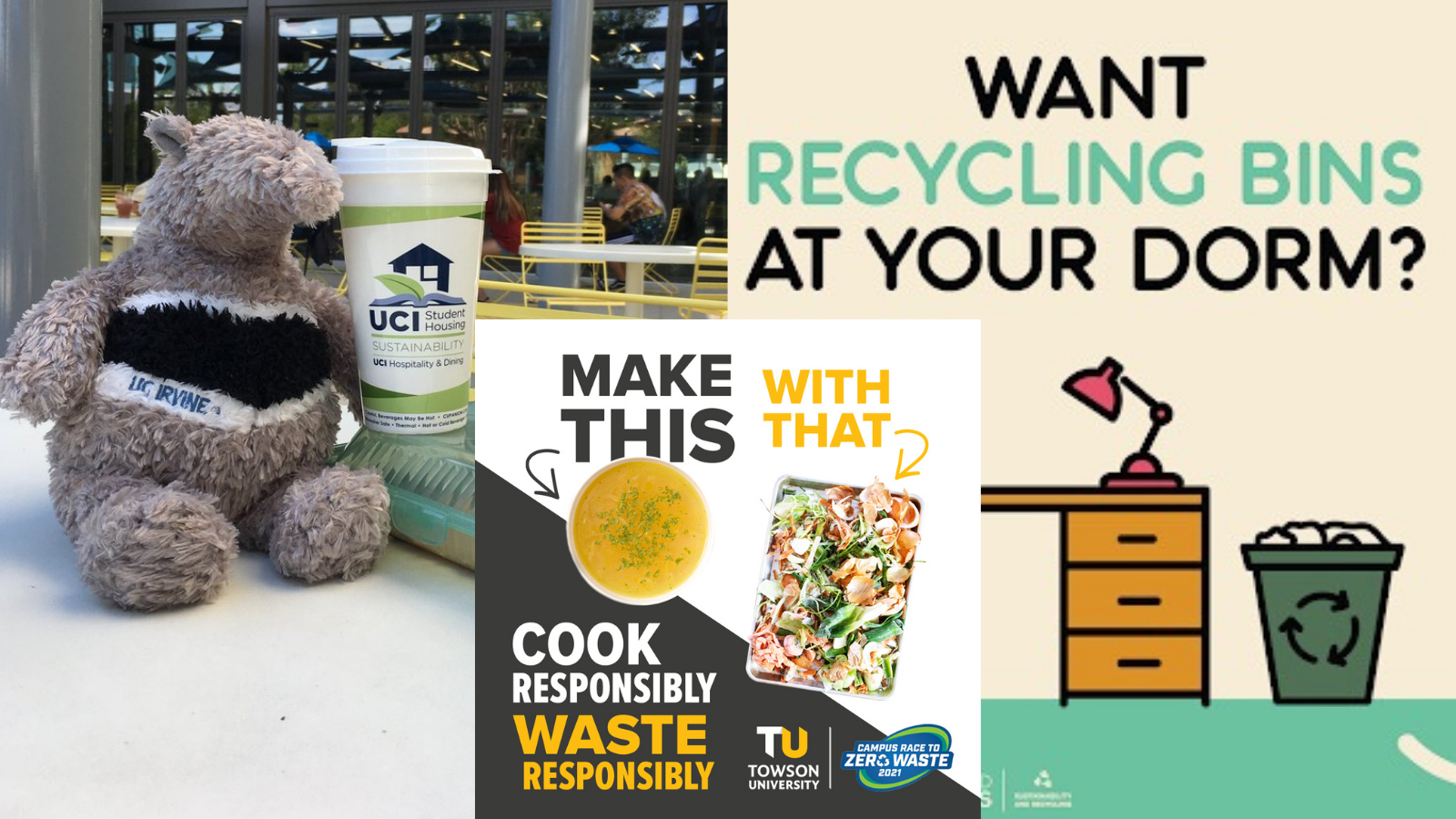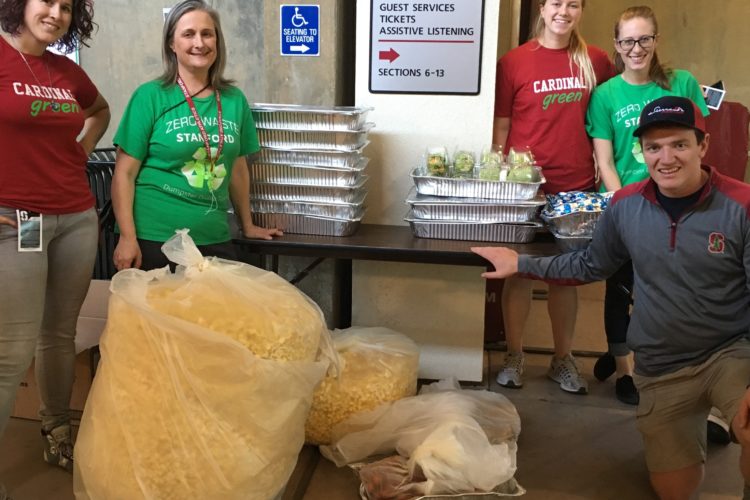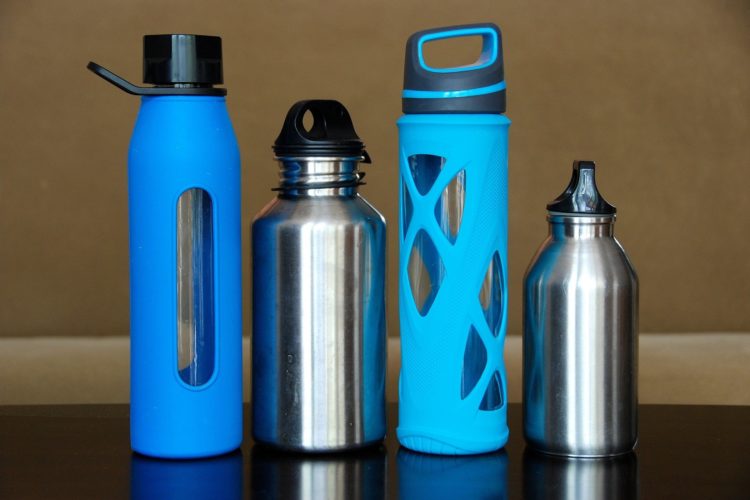We have much more to do and your continued support is needed now more than ever.
U.S. Colleges and Universities Are Making a Positive Impact on Climate through Waste Minimization Efforts

Today over 1,100 colleges and universities in the U.S. and Canada have participated in the Campus Race to Zero Waste program. Campus Race to Zero Waste has diverted close to 1,090 million pounds of waste through waste minimization efforts, donation, reuse, composting, and recycling. Through these efforts, campuses have also prevented the release of nearly 1.65 million metric tons of carbon dioxide equivalent. This prevention is comparable to removing over 340,000 gas engine passenger vehicles from the road for one year!
How college and university actions to reduce waste and increase recycling have a positive impact on the climate
Waste Minimization and Recycling
Reducing the purchase and use of new products results in less energy needed to extract, transport, and process materials to manufacture these new products. The purchase of materials made of recycled materials is also key. The processing and manufacturing of products using recycled materials use less energy than using virgin materials. Extraction and mining of virgin materials emit greenhouse gasses. So, less energy usage means fewer greenhouse gases are emitted into the atmosphere.
For example, using recycled aluminum is 92% more energy efficient than using virgin materials. Recycling paper also minimizes the need to cut down trees to produce new paper. Trees act as natural carbon sinks. When they are cut down, the carbon dioxide they are storing goes back into the atmosphere. According to the U.S. Environmental Protection Agency, forests and other nonagricultural lands absorb a net of 13% of U.S. carbon dioxide emissions.
Each year during the Campus Race to Zero Waste competition, colleges and universities implement waste minimization and recycling strategies to reduce their campus’s waste footprint. Read about some of these strategies in our case study database.
Food Waste Reduction
One of the most popular categories of the competition each spring is the Food Organics category. Over 150 campuses compete in this category each year! The Food Organics category recognizes campuses that successfully implement food waste minimization activities that address overage.

Beneficial strategies include portion control techniques and preparing food to order. This category also measures how recovered food waste is managed. Components here include donations to people, use for biofuels, and composting. In 2019, more than 2.5 million pounds of food was donated to people and animals and used for biofuels.
According to Food Rescue, American food production has a tremendous energy resource cost. About 10% of the nation’s total energy budget, 50% of its land, and 80% of all U.S. freshwater consumption are dedicated to the production and distribution of food. An unconscionable amount of those resources are wasted completely, as up to 40% of all food ends up in landfills.
Plastics Pollution
In 2018, the National Wildlife Federation took over the management of the Campus Race to Zero Waste program. NWF supports this program as an avenue to address plastic pollution in our country’s waterways – one of the biggest threats to wildlife. During the 2020 competition, colleges and universities kept more than 380 million plastic containers out of the landfill.

According to a recent report, Plastic & Climate: The Hidden Costs of Plastic Planet, “the plastic pollution crisis that overwhelms our oceans is also a significant and growing threat to the Earth’s climate. At current levels, greenhouse gas emissions from the plastic lifecycle threaten the ability of the global community to keep global temperature rise below 1.5°C. With the petrochemical and plastic industries planning a massive expansion in production, the problem is on track to get much worse.“
To learn more about plastic pollution’s impacts on humans and wildlife, check out the National Wildlife Federation guide: Stemming the Tide: Taking Action On Campus Against Plastic Pollution. The guide showcases strategies to reduce the purchase and use of plastics across 36 campuses.
About Campus Race to Zero Waste
Campus Race to Zero Waste – formerly known as RecycleMania – is the nation’s premier waste reduction and recycling competition among colleges and universities. Campus Race to Zero Waste is managed by National Wildlife Federation and governed by RecycleMania, Inc.
Campus Race to Zero Waste has been helping campuses minimize waste and improve their recycling efforts since its launch in 2001. Today, it is the nation’s premier waste reduction and recycling competition among colleges and universities, in partnership with National Wildlife Federation.






















